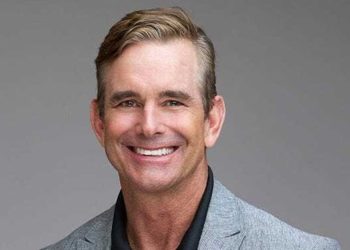BERLIN — The former German chancellor remains unrepentant.
During a recent stop in Hungary to promote her memoir, “Freedom,” Angela Merkel suggested Russia’s full-scale invasion of Ukraine could have been avoided. If only there had been no Covid pandemic, she said, if only Eastern European leaders hadn’t once refused talks with Vladimir Putin, the Russian president may not have ordered the invasion.
Coming at a time when Europe is wrestling with how to counter Russia’s escalating aggression, Merkel’s comments highlight her willingness to brush off strident criticism — especially out of Eastern Europe — of Germany’s historic failure to grasp the threat posed by Moscow. Leaders in the countries most exposed to Moscow accuse her of having turned a blind eye to Putin’s provocations in pursuit of a strategy of economic rapprochement that collapsed in 2022 when Russian tanks rolled into Ukraine anew.
Notably absent from Merkel’s comments was a critical analysis of what many see as her own decisive failures in Germany’s dealings with Putin during her 16-year reign. Instead, Merkel suggested Putin could have been reasoned with if the Europeans had had a little more luck and determination.
“Would Putin have invaded Ukraine if it hadn’t been for Covid?” Merkel asked during an interview with a Hungarian journalist. “No one can say for sure,” she added, echoing an argument she also makes in her book. “If you can’t meet face-to-face, if you can’t settle differences of opinion eye-to-eye, then you can’t find new compromises.”
Merkel went on to suggest that the unwillingness of Eastern European countries — namely the Baltic states and Poland — to agree to negotiate with Putin in 2021, when Merkel and French President Emmanuel Macron floated the possibility of a summit meeting between European leaders and the Russian president, may have also contributed to the invasion.
“It did not come to fruition, and then I left office, and then Putin’s aggression began,” Merkel said of the summit proposal.
Merkel’s comments outraged Ukrainian and Eastern European leaders, who long before Russia’s full-scale invasion had repeatedly warned German leaders of Putin’s aggressive intentions and imperial ambitions, though that message often fell on deaf ears. One high-ranking Ukrainian official told POLITICO that Merkel’s comments are “unacceptable and frankly sick.”
Putin’s propagandists and the pro-Kremlin media, on the other hand — normally no supporters of Merkel — were largely delighted. The ex-chancellor’s comments fit nicely into the Kremlin’s narrative that the West is the true aggressor.
“Merkel admitted the obvious: She revealed who in the West provoked the Ukrainian conflict,” ran one headline in a pro-Kremlin Russian tabloid.
Fall from grace
Merkel’s reluctance to reckon with the sharp criticism of her country’s historic Russia policy reveals just how deeply rooted some old German attitudes toward Moscow remain.
During Merkel’s 16 years in office, German policy toward Russia was defined by the slogan “Wandel durch Handel,” or “change through trade.” Economic interdependence with Russia, the thinking went, would help ensure peace in Europe, while also being very good for German business.
A key manifestation of that policy was the Nord Stream pipelines, built to bring Russian gas directly to Germany through the Baltic Sea. In 2014, even after Russia sent “little green men” into parts of Ukraine and annexed Crimea, German officials backed the plan to create the second such pipeline (the first was completed in 2011). They did so despite warnings from Eastern European leaders that Germany was following a policy of appeasement in the face of ever-clearer Russian imperialism.
After Russia’s full-scale invasion in 2022, many German leaders admitted that their approach to Russia had been a failure — and that their purchase of cheap Russian gas, in the end, did a lot to finance Putin’s war machine. “We held on to bridges that Russia no longer believed in, and that our partners warned us about,” German President Frank-Walter Steinmeier said at the time.
Many in Eastern Europe in particular see the sabotage of the Nord Stream pipelines, in the first year of the war, as a rightful refutation of Merkel’s outreach to Russia. “The problem with North Stream 2 is not that it was blown up,” Polish Prime Minister Donald Tusk said on Facebook Tuesday. “The problem is that it was built.”
But it appears to be too difficult for Merkel — once lauded as the “chancellor of the free world” when Time Magazine named her “Person of the Year” in 2015 — to accept that history may end up judging her far more critically.
“I believe we really have a growing problem here with Merkel’s loss of touch with reality, as I would describe it, and her attempt to influence her own history, her own role in history,” said Stefan Meister of the German Council on Foreign Relations. “In my opinion, this makes her untrustworthy. She is discrediting herself.”
While current Chancellor Friedrich Merz has pivoted from his country’s past policies and led much of the European effort to aid Ukraine, Merkel’s unwillingness to face up to Germany’s mistakes has helped prevent a broader national reappraisal of the country’s role in the lead-up to the war, according to Meister.
Inside Germany — and in particular in the former East Germany, where Merkel was raised — there remains considerable sympathy for Putin. Parties like the far-right Alternative for Germany, currently leading in many polls, and the populist-left Alliance Sahra Wagenknecht take a far more conciliatory approach to Moscow. Some Russia-friendly forces in Germany are seizing on Merkel’s interview to blame NATO for sabotaging peace efforts.
But even in Russia, some mocked Merkel’s assertion that more talks, by 2021, could have changed Putin’s plans.
“Anyone reasonably informed has long known that the disagreements between Russia and the West at that moment were already too deep,” Alexei Chesnakov, a former adviser to the Kremlin, wrote in an online post.
Eva Hartog, Nette Nöstlinger and Veronika Melkozerova contributed reporting.
The post Angela Merkel’s non-apology tour appeared first on Politico.




